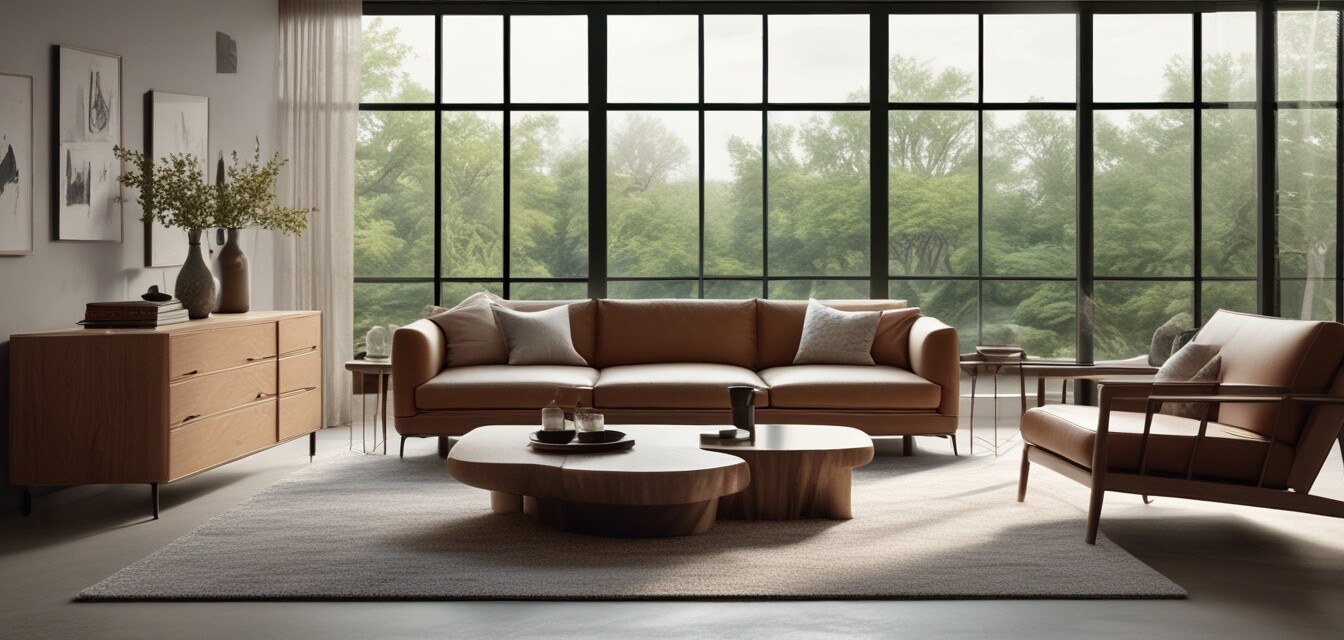
The Future of Eco-Friendly Furniture Retail
Key Takeaways
- Eco-friendly furniture is gaining popularity as consumers become more environmentally conscious.
- Retailers are incorporating sustainable practices in their strategies to appeal to eco-minded shoppers.
- Emerging materials and innovative designs are shaping the future of furniture retail.
- Consumer choices are increasingly influenced by transparency and sustainability credentials.
- The market is witnessing a shift towards more customizable and modular furniture options.
The rise of eco-friendly furniture is transforming the retail landscape. As consumers become more aware of their environmental impact, they are actively seeking sustainable options that not only meet their style preferences but also align with their values. This article delves into how eco-friendly furniture is influencing retail strategies and shaping consumer choices.
The shift towards sustainability
In recent years, the push for sustainability has gained momentum across various industries, and the furniture sector is no exception. With a growing focus on reducing carbon footprints, furniture retailers are reevaluating their supply chains and production methods. Here are some key trends:
- Increased use of reclaimed and recycled materials
- Transparency in sourcing and manufacturing processes
- Partnerships with eco-friendly organizations to enhance credibility
Consumer preferences in eco-friendly furniture
Today's consumers are not just shopping for style; they are investing in pieces that reflect their values. Here are some preferences that are emerging in the eco-friendly furniture market:
| Consumer Preference | Description |
|---|---|
| Materials | Preference for natural, renewable, or recycled materials over conventional ones. |
| Design | Interest in minimalist, modular, and customizable designs that reduce waste. |
| Brand Transparency | Demand for information on sustainability practices and sourcing. |
The role of technology
Technology plays a significant role in facilitating eco-friendly practices. From advanced manufacturing techniques to smart furniture solutions, technology is paving the way forward for sustainable retail. Key areas of innovation include:
- 3D printing for minimizing material waste
- Smart furniture that can adapt to user needs while using sustainable resources
- Online platforms providing detailed sustainability ratings and certifications
Retail strategies for eco-friendly products
To effectively embrace the eco-friendly movement, furniture retailers must adapt their strategies. Here are some popular approaches:
- Highlighting sustainability: Leverage marketing to inform consumers about the benefits of sustainable choices.
- In-store experiences: Create immersive experiences that showcase the beauty and functionality of eco-friendly options.
- Educating consumers: Offer resources and information that help consumers understand the impact of their choices.
Future predictions for the eco-friendly furniture market
Looking ahead, the eco-friendly furniture market is poised to grow significantly. Key predictions include:
- Greater emphasis on circular economy models, where materials are continually reused.
- Expansion of eco-friendly certifications and labels to guide consumer choices.
- Continued innovation in sustainable materials, including bio-based composites and natural finishes.
Conclusion
The future of eco-friendly furniture retail holds immense promise as consumers and retailers alike prioritize sustainability. By embracing innovative designs, transparent practices, and cutting-edge technology, the industry can not only meet consumer demand but also lead the charge in promoting a sustainable future.
Pros
- Reduces environmental impact by utilizing sustainable materials.
- Promotes awareness around the importance of eco-conscious purchasing.
- Encourages innovation in design and manufacturing practices.
Cons
- Higher initial cost compared to traditional furniture options.
- Lack of availability in some rural areas.
- Potential for limited variety in certain styles or designs.
Learn more
For further insights into the world of sustainable furniture, check out our Eco-Friendly Living blog and explore various approaches to creating a greener home.
To discover the latest trends, visit our News and Trends section for updates on what’s new in eco-friendly furniture.
For those looking to purchase, our Wooden TV Stands and Floating TV Stands offer eco-conscious options while enhancing your home aesthetic.